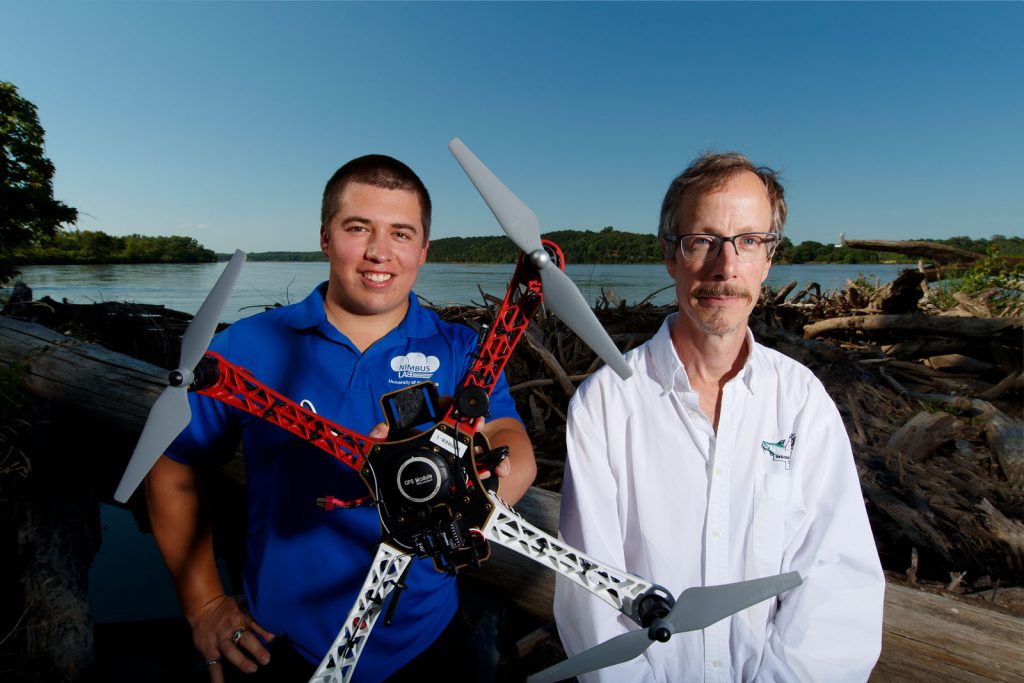
Nebraska’s NRT, director Craig Allen and the research of NRT student Daniel Rico figured prominently in the University of Nebraska’s annual research report, which came out in November.
“We chose to focus on the NRT program because it’s taking a brand-new approach to training graduate students and others that we hope will provide a model for Nebraska and beyond,” Ashley Washburn, Director of Research Communications, said. “Craig Allen has been at the forefront of this work for many years, and this is a great story of transferring knowledge to the next generation of professionals in the natural resources field.”
The theme of this year’s report is resilience, especially of agricultural, energy and natural resource systems.
“This is a critical issue for an ag-heavy state like Nebraska and in the rest of the world,” Washburn said. “Demands for food, energy and water are only increasing, and research is a critical way to ensure global food security.”
Master’s student Daniel Rico spoke in the report about his research using tethered drones to analyze crop responses to climatic changes and develop more resilient crop strains. He and 11 other graduate students work under the direction of Allen to make the Platte River Basin more resilient.
Rico said that having his research featured in the report made him “proud to be a part of something that has the potential to really make a difference.”
“I am motivated more than ever to continue to push my research forward and do everything I can to ensure humanity a brighter tomorrow,” he said.
The annual research report is the university’s main external marketing piece that highlights faculty accomplishments. It goes to federal program officers, peer institutions, university supporters and friends, faculty, policymakers and private foundations.
“Inclusion of the NRT in the UNL research report demonstrates the commitment of the university to the NRT and, most importantly, to the sustainability of the NRT program into the future, post-NSF support,” Allen said.
Readers can view the full report here.
Ronica Stromberg, NRT program coordinator
More details at: https://go.unl.edu/ukk3